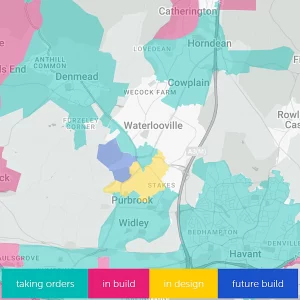Sponsored Links
Ofcom Consults to Regulate UK Broadband VoD Internet TV Services
Posted: 14th Sep, 2009 By: MarkJ
The days of unregulated broadband Video-on-Demand (VoD) Internet TV services are coming to an end. Online TV-like setups, such as those run by the BBC ( iPlayer ), ITV ( ITV Player ) and BT Vision (i.e. those that make programmes available for members of the public to view at a time of their choice), will soon have to adhere to a new set of rules.
Under revised European (EU) law - the 'Audiovisual Media Services Directive', content on VOD services must be regulated from 19th December 2009. Such services are available through Virgin Media , BSkyB and BT Vision as well as through the Internet.
Ofcom proposes that VOD services are regulated by the industry body, the Association for Television On Demand (ATVOD), and that advertising included in those services, is regulated by the Advertising Standards Authority (ASA). BBC content will continue to be jointly regulated by the BBC Trust and Ofcom.
However other types of VOD programming will not be subject to Ofcom's Broadcasting Code: These include electronic versions of newspapers, private websites and un-moderated user generated material (e.g. YouTube). That is interesting because YouTube carries a lot of broadcaster TV content.
The consultation concludes on 26th October:
http://www.ofcom.org.uk/consult/condocs/vod/
Under revised European (EU) law - the 'Audiovisual Media Services Directive', content on VOD services must be regulated from 19th December 2009. Such services are available through Virgin Media , BSkyB and BT Vision as well as through the Internet.
Ofcom proposes that VOD services are regulated by the industry body, the Association for Television On Demand (ATVOD), and that advertising included in those services, is regulated by the Advertising Standards Authority (ASA). BBC content will continue to be jointly regulated by the BBC Trust and Ofcom.
Programming
Under the proposals for consultation ATVOD would regulate VOD services and would be required to ensure that programming on VOD services adheres to a number of minimum standards from the Directive which will be set out in UK legislation. Programmes, for example:
•must not contain any incitement to hatred based on race, sex, religion or nationality;
•must not provide material which might seriously impair the physical, mental, or moral development of minors unless it is made available in such a way that ensures that minors will not normally hear or see such content; and
•sponsored programmes and services must comply with applicable sponsorship requirements.
Advertising
The new legislation requires that advertising on VOD services must also comply with a number of minimum standards. For example:
•advertising must be readily recognisable and cannot contain any surreptitious advertising or use subliminal advertising techniques;
•advertising must not encourage behaviour that is prejudicial to the health or safety of people; and
•tobacco products, prescription-only medicines or medical treatments cannot be advertised.
Under the proposals for consultation ATVOD would regulate VOD services and would be required to ensure that programming on VOD services adheres to a number of minimum standards from the Directive which will be set out in UK legislation. Programmes, for example:
•must not contain any incitement to hatred based on race, sex, religion or nationality;
•must not provide material which might seriously impair the physical, mental, or moral development of minors unless it is made available in such a way that ensures that minors will not normally hear or see such content; and
•sponsored programmes and services must comply with applicable sponsorship requirements.
Advertising
The new legislation requires that advertising on VOD services must also comply with a number of minimum standards. For example:
•advertising must be readily recognisable and cannot contain any surreptitious advertising or use subliminal advertising techniques;
•advertising must not encourage behaviour that is prejudicial to the health or safety of people; and
•tobacco products, prescription-only medicines or medical treatments cannot be advertised.
However other types of VOD programming will not be subject to Ofcom's Broadcasting Code: These include electronic versions of newspapers, private websites and un-moderated user generated material (e.g. YouTube). That is interesting because YouTube carries a lot of broadcaster TV content.
The consultation concludes on 26th October:
http://www.ofcom.org.uk/consult/condocs/vod/
Search ISP News
Search ISP Listings
Search ISP Reviews
Latest UK ISP News








Cheap BIG ISPs for 100Mbps+
150,000+ Customers | View More ISPs
Cheapest ISPs for 100Mbps+
Modest Availability | View More ISPs
Latest UK ISP News
Helpful ISP Guides and Tips
Sponsored Links
The Top 15 Category Tags
- FTTP (6798)
- BT (3881)
- Politics (3074)
- Business (2766)
- Openreach (2663)
- Building Digital UK (2512)
- Mobile Broadband (2475)
- FTTC (2142)
- Statistics (2127)
- 4G (2092)
- Virgin Media (2024)
- Ofcom Regulation (1779)
- 5G (1732)
- Fibre Optic (1604)
- Wireless Internet (1595)
Sponsored
Copyright © 1999 to Present - ISPreview.co.uk - All Rights Reserved - Terms , Privacy and Cookie Policy , Links , Website Rules































